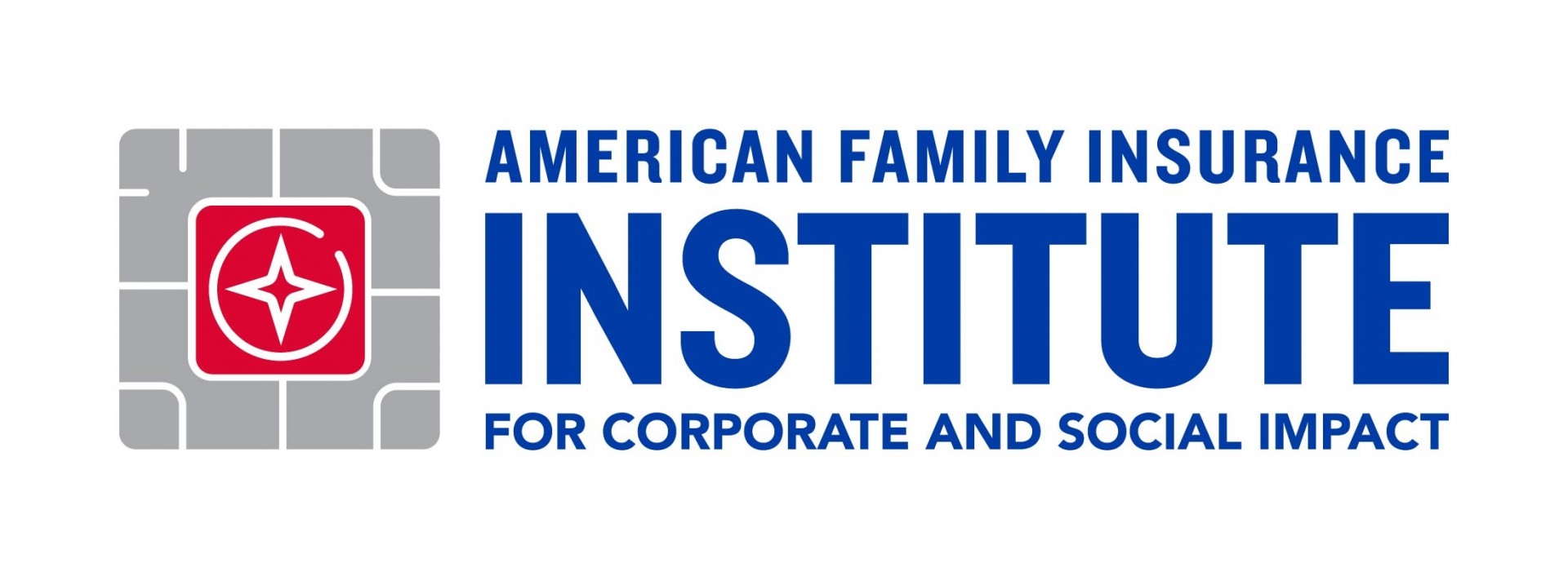
This Week in Milwaukee Rising is underwritten by American Family Insurance Institute for Corporate and Social Impact.
Editor’s note: This Q&A originally appeared in This Week in Milwaukee Rising, a weekly newsletter from Technical.ly that highlights the innovators bringing a more just, equitable and dynamic Milwaukee economy. Subscribe here to follow civic-minded news in the Rust Belt city.
When employees are impacted by tragedy, business leaders should respond — whether they think that tragedy affects their businesses directly or not.
It’s one of the poignant lessons learned from the past year and half. From racial justice inequities propelled into the national spotlight by the Black Lives Matter movement in June 2020, to the COVID-19 pandemic forcing crises of both public health and mental health, many professionals struggled to find their place in the conversation, and to support their employees through it.
Wisconsin has been in the national spotlight in recent weeks. On Nov. 19, at the conclusion of a high-profile trial, Kyle Rittenhouse, a teenager who fatally shot two men during an antiracism protest in Kenosha in 2020, was found not guilty and acquitted of all charges.
Just days later, more than 60 people were injured and six people lost their lives after a man driving an SUV plowed through the crowd at the annual Waukesha Christmas Parade.
For many people, the back-to-back events have dealt blows in an already trying year. While recent events may not have directly impacted the region’s businesses, high emotions don’t always disappear when employees arrive at the workplace. Amid the lingering pandemic, ongoing racial reckoning and economic strain, workplace experts say the collective trauma and stress is leaving employees feeling emotionally drained.
Technical.ly reached out to Milwaukee-based DEI consultant Beth Ridley of Beth Ridley Consulting to learn how local companies can support employees with healthy dialogue as they navigate sensitive times, and help build community resilience. The following Q&A has been lightly edited for length and clarity.
###
Technical.ly: The past few years have been challenging for many employees, especially in an era of partisan politics and racial reckoning. How has this affected the workplace?
Beth Ridley: It definitely impacts employees because they are human. We show up to work with our thoughts, our feelings and experiences. Yet when you come to work, you’re supposed to leave that behind and be “smiley.” But it’s a bit of a more controlled environment than the street or a bar [where tempers can flare]. For many people, the work environment is their most diverse environment. If you can bridge dialogue in an environment where people are going to be [civil] we should take advantage of that. Understanding challenges and opportunities through different lenses will lead to better business decisions.

Beth Ridley. (Courtesy photo)
How should employers approach sensitive issues in the workplace?
In an ideal world, you don’t wait to approach these issues. It can feel disingenuous. You should be laying the foundation to foster those relationships. It’s a manager’s job to establish trusting relationships, otherwise you can’t provide critical feedback, get to know their strengths, or areas of development. It’s important to carve out time to ask employees about their weekend, what they’re excited about, etc. so that when something like this happens, you’ll know what to say: “Is everyone in your family OK, is there anything that I can do to support you?”
It’s worth the investment of time to get to know your employees, so they can have a better appreciation for what they are going through and help them bring their best self to work. Just because it’s not your life experience doesn’t mean it’s not valid. To me it’s about mastering the ability to feel comfortable around differences. If you can practice that, you’ll be in a good place when heavier topics come up.
Do you have any tips for navigating difficult dialogue?
To truly broaden your view, you have to ask questions with genuine compassion and curiosity. Don’t assume everybody is going to think the same as you are. Believe what someone tells you. If you’re going to ask them a question, don’t do it because they are a certain ethnicity, sexual orientation, etc. Start with, “I’m curious to know …” because it opens the door without judgement. Don’t process with your own perspective. This is a time to listen and understand, not to disagree. Even if the words don’t come out perfectly, the spirit is there.
How can healthy dialogue in the workplace build community resilience?
At the end of the day, the number one source of joy and meaning in life is genuine relationships with others — it’s not about agreeing with someone. People at work go back home and can be a good force in their communities. You can’t control the news. Err on the side of discovering our shared humanity and you will be a happier and more joyful person because of that.
Subscribe to This Week in Milwaukee RisingJoin the conversation!
Find news, events, jobs and people who share your interests on Technical.ly's open community Slack

Delaware daily roundup: Delmarva Power vendor stats; DelDOT's $15M federal grant; 50 best companies to work for

Delaware daily roundup: Over 4,000 Black-owned businesses uncovered; Dover makes rising cities list; a push for online sports betting

Philly daily roundup: East Market coworking; Temple's $2.5M engineering donation; WITS spring summit


